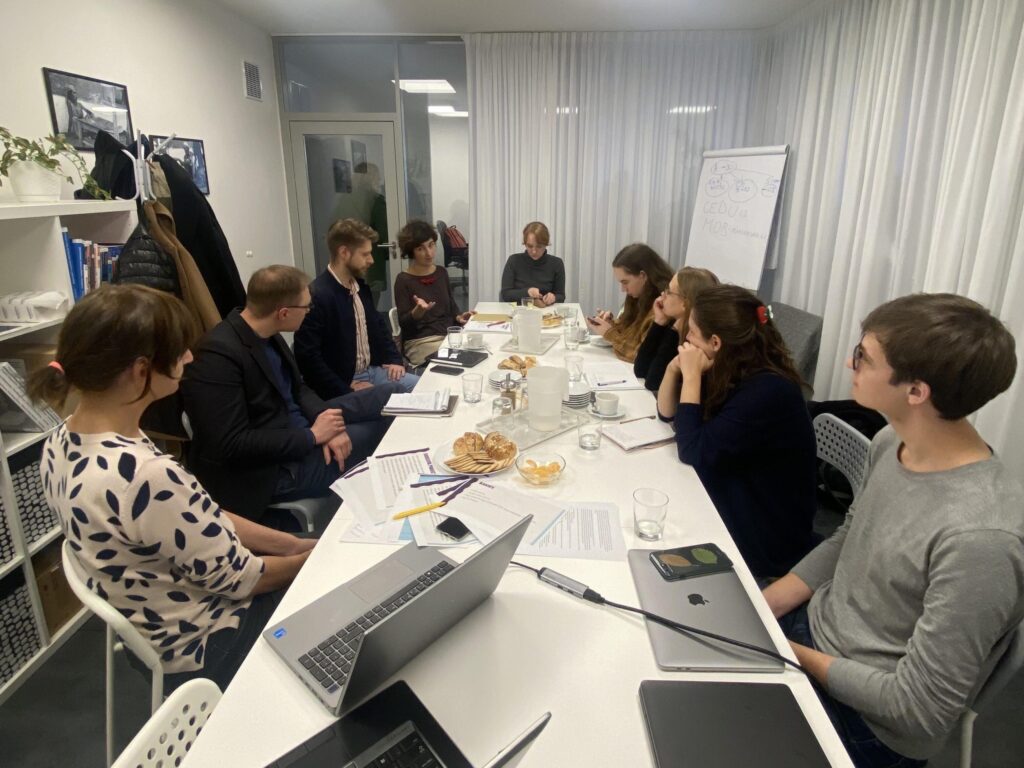The Visegrad Cooperation on School Participatory Budgets has had its kick off meeting.
Recently, due to the coronavirus pandemic, the interaction of young people with each other has significantly decreased, and the motivation of students to get involved in decision-making processes decreased even more. At the Participation Factory, we decided to lead a project together with partner organizations from Poland and Hungary to respond to the need to establish a continuous dialogue with young people. We want to involve students in decision-making processes in schools, to teach them to lead their projects, collaborate on them, present them, discuss them and, last but not least, to vote democratically on them. The means to achieve these goals is school participatory budgeting (PB), often referred to in the Czech Republic as school Pébéčka.
School participatory budgeting allows students to participate in the decision-making process on how to spend part of their institution’s budget. These processes help develop young people’s leadership skills, improve civic education, and inspire lifelong active citizenship, which is essential for the health of our democracies. It is often the first opportunity for young people to propose and vote on real projects that can improve their community.
Our first joint activity for the Visegrad Youth Participates was a three-day study visit attended by representatives of the partners (PF, Field of Dialogue, Alternatív Közösségek Egyesülete) in Prague. During the event, representatives of the Ministry of Interior of the Slovak Republic, the Prague 7 municipality, the city of Kutná Hora and its students as well as the co-founder of Participation Factory, Tomáš Rákos, shared their practical experience of school participatory budgeting.
During the three day program, a wide range of different ways of using school participatory budgeting was presented. In Slovakia, the approach is from the top, from the Ministry of the Interior down to the regional level. In Slovakia, schools have a unified methodology for PBs. However, such an approach requires a strong political will to launch it, as participatory budgeting does not take place autonomously in individual schools. An interesting feature is the original board game used by the Ministry of the Interior to explain the benefits of participatory projects to its partners at the regional and institutional level.
In Czechia, school participatory budgeting is initiated by cities or municipalities. Sylva Svobodová, Chair of the Committee on Education, Social Policy, and Health, spoke on behalf of the progressive Prague 7 district. She presented her experience with school PBs and how Prague 7 tries to involve students in democratic processes through student councils and student parliaments. The meaningfulness of such projects is confirmed by the suggested proposals where students, for example, want to use the money to buy air purifiers during the pandemic. A representative of the student council also shared his perspective on the processes in place.
The whole event culminated in a visit to Kutná Hora, where a school participatory budgeting system was transformed into a city-wide participatory budgeting moderated and organized by students. In this way, Kutná Hora invited citizens to take part in allocating its cities budget for two consecutive years. The number of voters doubled the second year around. This participatory student-led project was initiated by Vít Šnajdr from the city hall, who introduced the process to the participants of the study stay in Kutná Hora. With his support and expert assistance from Tomáš Rákos, the local students managed to handle the complete process, including the creation of the website and the use of the digital tool Munipolis to inform citizens, present individual citizen proposals and the final vote. In this way, Kutná Hora managed not only to introduce democratic principles and processes to students and young citizens but also to involve several students directly in such processes at a city level. The students who participated in the project also presented their experiences and visions for the future, namely Karolína Vilímová, who led the entire participatory budget in Kutná Hora, and Adam Svoboda, who created the website. The students talked about the opportunity to work on such an important project and shared their enthusiasm about being able to participate in the life of their city, gain valuable experience, and be heard by their older fellow citizens.
Through the cooperation of the organizations involved in the Visegrad project and the implementation of it, other partners will be able to engage a wide range of supporters and potential implementers of other school PBs. In the next phases, we want to develop guidelines for the implementation of school participatory budgeting and promotional materials based on local best practices and experiences from Hungary, Poland, and the Czech Republic. These materials will be shared with other local actors to help ensure a higher level of preparedness and involvement of young people in social and political life not only in their communities but also at their regional and European levels. Soon, the participants will be researching the experiences of individual cities, the possibilities of systematically setting up school-based participatory budgeting, and the specific progressive approach of Kutná Hora city. The project will culminate in an international conference scheduled for early 2024.

